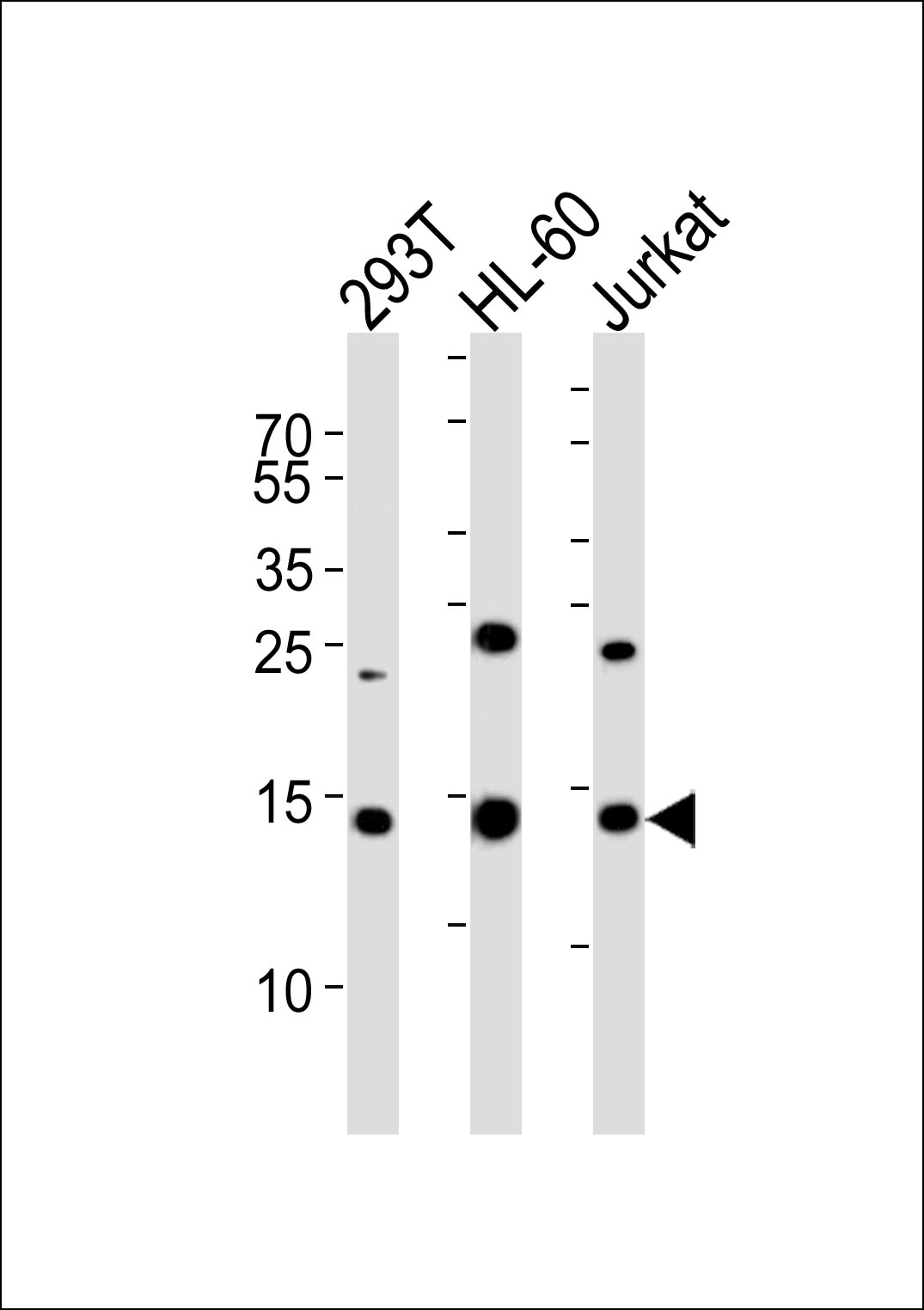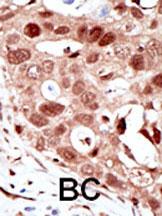SUMO2 Rabbit Polyclonal Antibody (C-term)
产品基本信息

Western blot analysis of lysates from 293T, HL-60, Jurkat cell line (from left to right), using SUMO2 Antibodyat 1:5000 dilution was used as the secondary antibody. Lysates at 35ug per lane.

Formalin-fixed and paraffin-embedded human cancer tissue reacted with the primary antibody, which was peroxidase-conjugated to the secondary antibody, followed by AEC staining. This data demonstrates the use of this antibody for immunohistochemistry; clinical relevance has not been evaluated. BC = breast carcinoma; HC = hepatocarcinoma.

The SUMO2 C-term Antibody is used in Western blot to detect SUMO2 in GST-SUMO2 fusion protein (lane 1) and HL60 cell lysate (lane 2).

Western blot analysis of SUMO2 (arrow) using rabbit polyclonal SUMO2 Antibody either nontransfected (Lane 1) or transiently transfected (Lane 2) with the SUMO2 gene.
相关文献
产品问答
相关产品

市场:027-65023363 行政/人事:027-62439686 邮箱:marketing@brainvta.com 客服:18140661572(活动咨询、售后反馈等)
销售总监:张经理 18995532642 华东区:陈经理 18013970337 华南区:王经理 13100653525 华中/西区:杨经理 18186518905 华北区:张经理 18893721749
地址:中国武汉东湖高新区光谷七路128号中科开物产业园1号楼
Copyright © 武汉枢密脑科学技术有限公司. All RIGHTS RESERVED.
鄂ICP备2021009124号 DIGITAL BY VTHINK